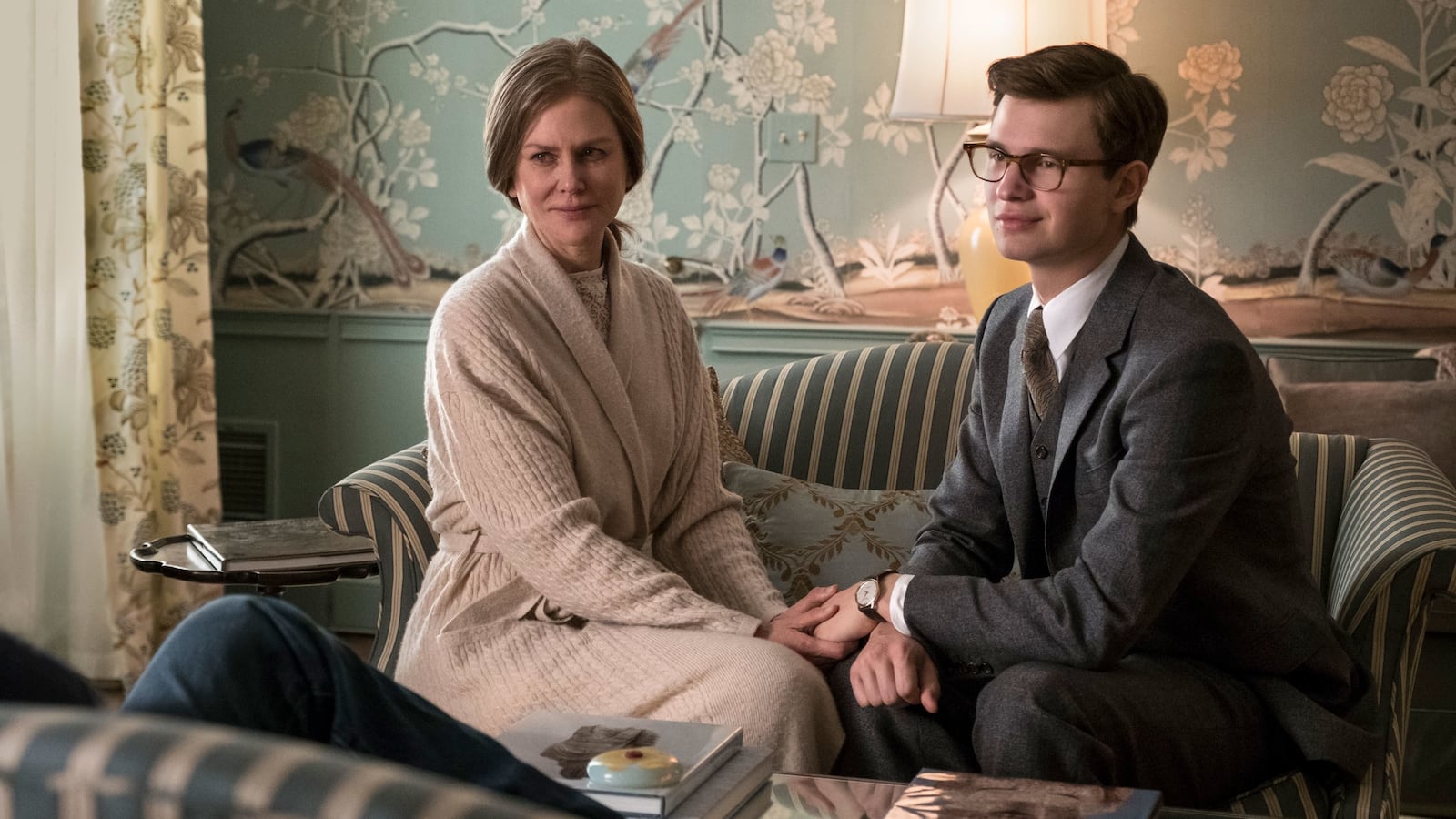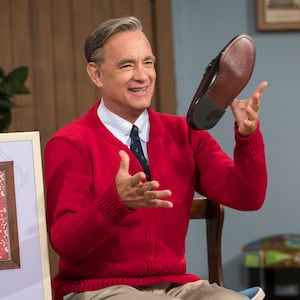The first thing you have to know about The Goldfinch is that it’s a stilted and seemingly endless (nearly three-hour, but it feels longer) adaptation of Donna Tartt’s heartfelt novel, and for that reason it will forever fall into the camp of Bad Book-to-Movie Adaptations, the ones that are such a cumbersome disaster that they make book lovers seethe. The second thing you need to know is that it is impeccably shot by the great Roger Deakins, who’s so talented he could make a storage unit into a place of beauty (which he does here!). And so, as the movie drifts along to a rote script that reproduces the book’s events with all the splendor of a fine art duplicate from the dollar store, Deakins becomes the film’s only star.
Deakins steals this (not particularly competitive) title from Ansel Elgort and Oakes Fegley, who share The Goldfinch’s hero role, Theo: a Harry Potter-type who’s kicked from guardian to guardian after he loses his mother in a bombing at the Metropolitan Museum of Art. This early tragedy activates a Homerically familiar story of unlikely survival that plods along two interwoven timelines: the earlier following Theo as a boy (Fegley) immediately after his mother’s death, living at first with members of the Manhattan haut monde and later with his negligent father outside Las Vegas. The other charts Theo as a young adult (Elgort) working in an antiques shop. Throughout, Theo carries with him a secret memento: a small painting of a goldfinch that he retrieved from the ashes—both a rescue and a robbery—after surviving the Met bombing.
It’s unsurprising that the powers-that-be selected John Crowley to direct; his graceful rendering of setting and saga in Brooklyn make him a natural choice. But in The Goldfinch, none of it congeals. The characters range from the banal—staple supportive caretakers Mrs. Barbour (Nicole Kidman) and antiques dealer Hobie (Jeffrey Wright)—to the surreal: Ukrainian hooligan Boris (Finn Wolfhard, looking vampiric). The disparate settings add to a sense of chaos, and themes of loss and fraud are recited so often they start to give you a headache. Visually, the film is almost eerily perfect: Most scenes are swathed in either yellow or blue, and the film’s glossy artifacts are displayed in both crisp wide shot and fuzzy shallow focus. But it’s hard to appreciate the exquisiteness of the image when the movie’s such a slog—embarrassing not for being conventional, but for not even being able to pull off conventional.
Our anchor and intermittent narrator lies in Theo, a precocious, somber kid who’s constantly hoisting his glasses up his nose as he asserts his preference for Beethoven and Tolkien and Edgar Allen Poe. Even as a little guy he’s often outfitted in stuffy sweater vests and mini-ties, clothing choices that are meant to hammer in how quickly he was forced to grow up once he became orphaned. In an early scene after the bombing, ashes caked into Theo’s hair make him appear greying, like a tiny old man. He warms up a little as an adult, and Elgort, ever the poised heartthrob, wears Theo’s barely suppressed grief and guilt to the best of his ability. But when he’s reacting to lines like “You never know what’s going to decide your future…” and “To lose something that should have been immortal…” it’s hard to observe Elgort’s self-consciously stiff upper lip without rolling your eyes.
Both of those lines are uttered by Wright, thank goodness, who’s practiced in making even the most wooden dialogue sound OK. Kidman too offers a just-fine performance as the elegant Mrs. Barbour, who comes to endure her own set of family misfortune that aids in making the story a bit meatier, more realized. Unexpectedly, the performances I most dug were the minor roles of Luke Wilson and Sarah Paulson, who show up in trashy Vegas garb as Theo’s estranged father and his girlfriend to scoop Theo up and bring him back to their home in a Nevadan dust bowl. Some of the movie’s best sequences—the ones that really move without an oppressive score or kitschy montage—take place over there, where Deakins helps us taste the dry desert air. It’s almost enough to make you wonder what The Goldfinch would have been like as a miniseries, one that allowed everyone a little more time to breathe.
Because here’s the weird thing about The Goldfinch: Despite its interweaving timelines and lush cinematography and decent performances, it never takes shape into anything you care about. The book is 784 pages. It investigates art and terrorism and experimentation with drugs and that particular unimaginable sadness of watching one’s mother die. For Tartt to make Theo an orphan was practical; to give him an oddball Slavic sidekick was enjoyable. The movie adaptation was a ready-made Oscar vehicle, and in some other dimension there’s a version of The Goldfinch that amounts at least to that most unsurprising of creative artifacts: the sum of its parts. Instead it’s a labored translation, very beautiful and very meaningless.







